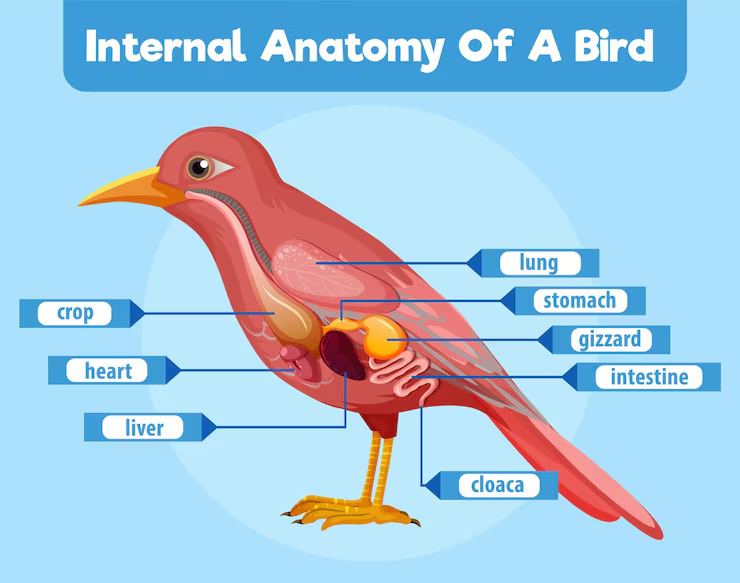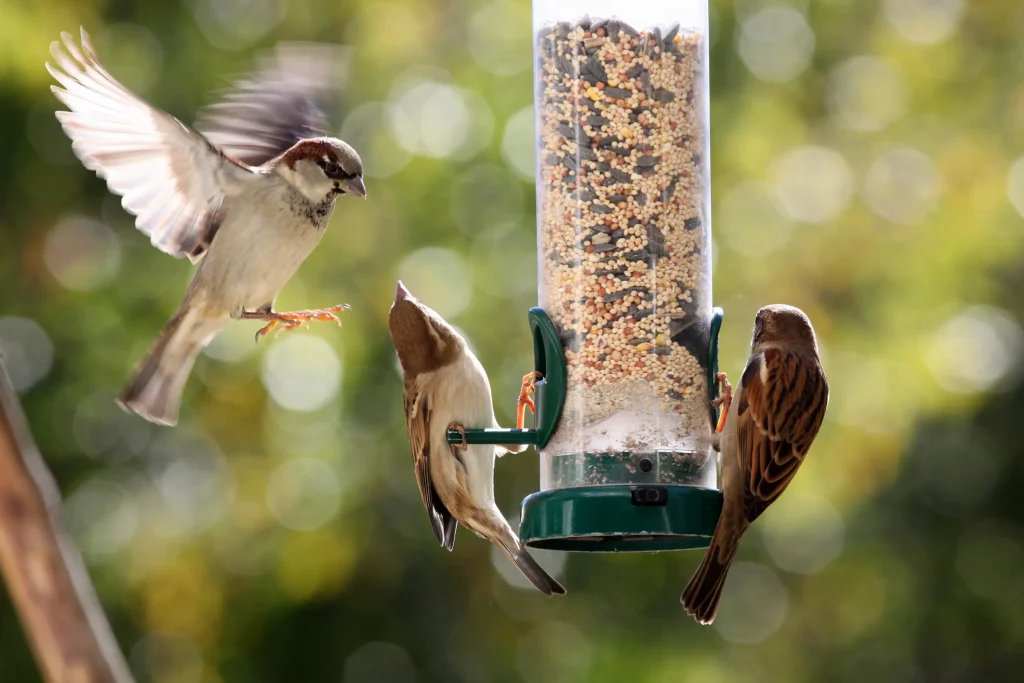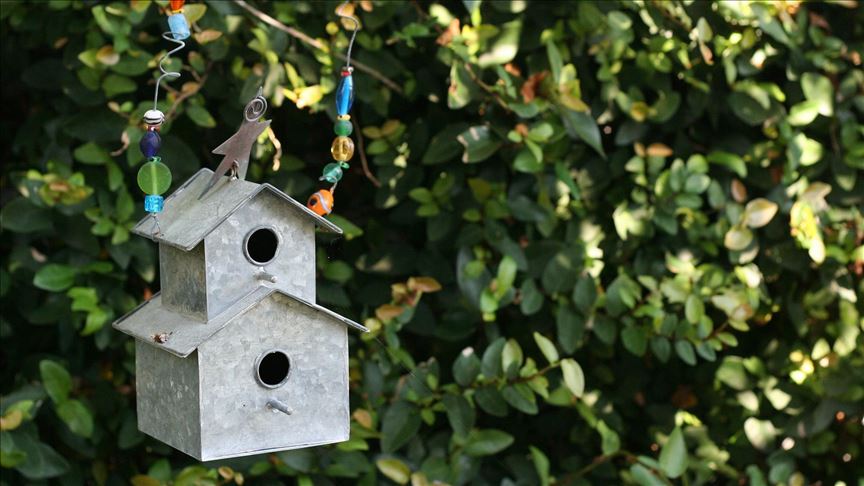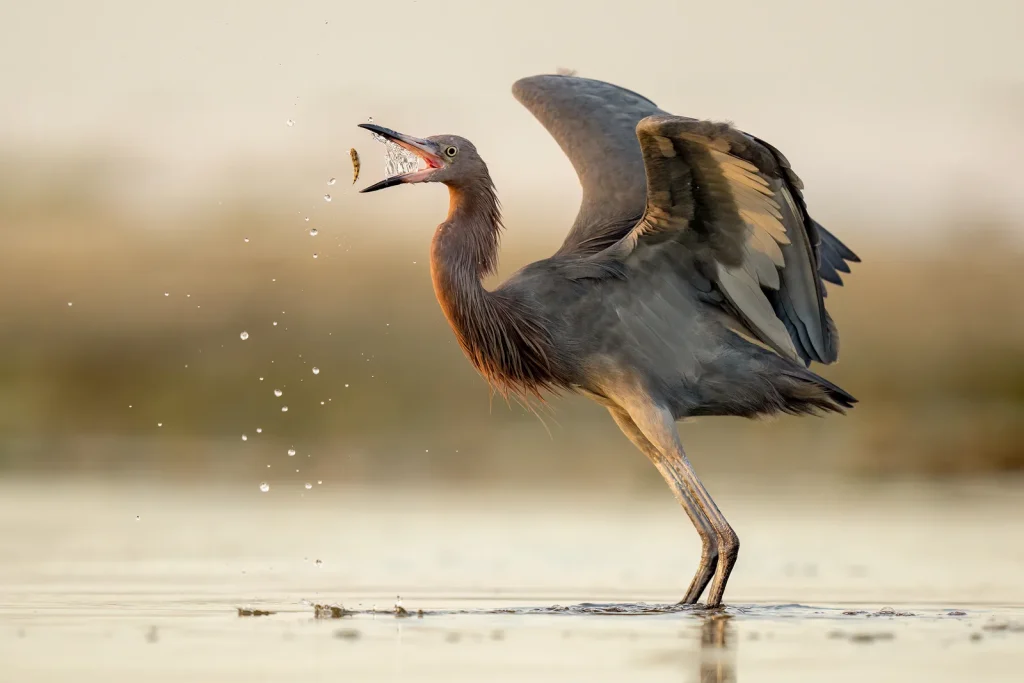Have you ever wondered what happens when you put birds in front of a mirror? As a bird owner or enthusiast, you might be curious about how these feathered friends react to their reflections.
This intriguing question opens a window into the fascinating world of avian behavior. You may think a mirror is just a simple household object, but it can have surprising effects on your bird’s mind and mood. Imagine the possibilities: could a mirror become a new playmate for your pet, or could it pose unexpected challenges?
By understanding these dynamics, you can ensure your bird’s environment is both stimulating and safe. Dive into this captivating topic, and discover the surprising truths that can enrich your bond with your bird.

Credit: www.amazon.ae
Birds And Mirrors
Birds often react in interesting ways when they see mirrors. Many people wonder if it is safe or helpful to put birds in front of mirrors. Understanding how birds see their reflections can guide better care and interaction.
This article explains why birds are attracted to mirrors and what common reactions they show. Knowing these facts helps bird owners create a safe environment for their pets.
Why Birds Are Attracted To Mirrors
Birds see their reflection in mirrors and often think it is another bird. This can make them curious and interested. They may feel less lonely when they see their reflection.
- Mirrors show a clear image that birds can recognize.
- Reflections may appear like a new friend or rival.
- Shiny surfaces catch birds’ attention quickly.
- Birds use mirrors to explore their surroundings.
- Some birds enjoy talking or singing to their reflection.
Common Bird Reactions To Reflections
Birds react to mirrors in different ways. Some become excited, while others may act scared or confused. Watching these behaviors helps owners understand their bird’s feelings.
| Reaction | Description | Possible Cause |
| Curious | Birds approach and look closely at the mirror. | Interest in their reflection |
| Friendly | Birds sing or chirp to their reflection. | Thinking it is another bird |
| Aggressive | Birds may peck or flap at the mirror. | Seeing a rival bird |
| Fearful | Birds avoid or hide from the mirror. | Confusion or stress |
| Indifferent | Birds ignore the mirror completely. | Lack of interest |
Mirror Effects On Bird Behavior
Birds often react to mirrors in unique ways. Seeing their reflection can change how they act.
Some birds may feel curious, while others might show signs of stress. Understanding these behaviors helps bird owners.
Signs Of Stress Or Aggression
When a bird sees its reflection, it might think it is another bird. This can cause stress or aggression.
- Pecking at the mirror repeatedly
- Fluffing up feathers aggressively
- Making loud calls or squawks
- Pacing back and forth near the mirror
- Showing signs of fear or avoidance
These actions show the bird feels threatened or confused by the reflection.
Instances Of Comfort And Curiosity
Some birds enjoy looking at themselves in mirrors. It can give them comfort and fun.
| Behavior | Description |
| Preening | Bird cleans its feathers while looking in the mirror |
| Head Tilting | Bird tilts its head to explore the reflection |
| Singing | Bird sings or chirps at its reflection |
| Playing | Bird interacts by tapping or moving near the mirror |
These behaviors show the bird feels safe and enjoys the mirror’s presence.
Species That Respond Differently
Birds react to mirrors in many ways. Some see their reflection as a friend or foe. Others do not recognize themselves at all.
Different bird species show different behaviors when placed in front of mirrors. Understanding these reactions helps bird owners and researchers.
Parrots And Their Mirror Interactions
Parrots often interact strongly with mirrors. They may treat their reflection as another bird. This can lead to talking, playing, or showing aggression.
Some parrots enjoy the company of their reflection. Others become stressed or try to attack the mirror. It depends on the parrot’s personality and species.
- Many parrots see mirrors as companions
- They may mimic sounds to communicate
- Aggression can occur if they feel threatened
- Some parrots lose interest after a while
Songbirds And Reflection Responses
Songbirds respond to mirrors in different ways than parrots. Some see their reflection as a rival. They may sing loudly or try to chase it away.
Other songbirds ignore the mirror completely. They often do not recognize the reflection as themselves. This shows how self-awareness varies across species.
- Many songbirds see reflections as threats
- They may sing more to defend territory
- Some show curiosity without aggression
- Many do not recognize their own image
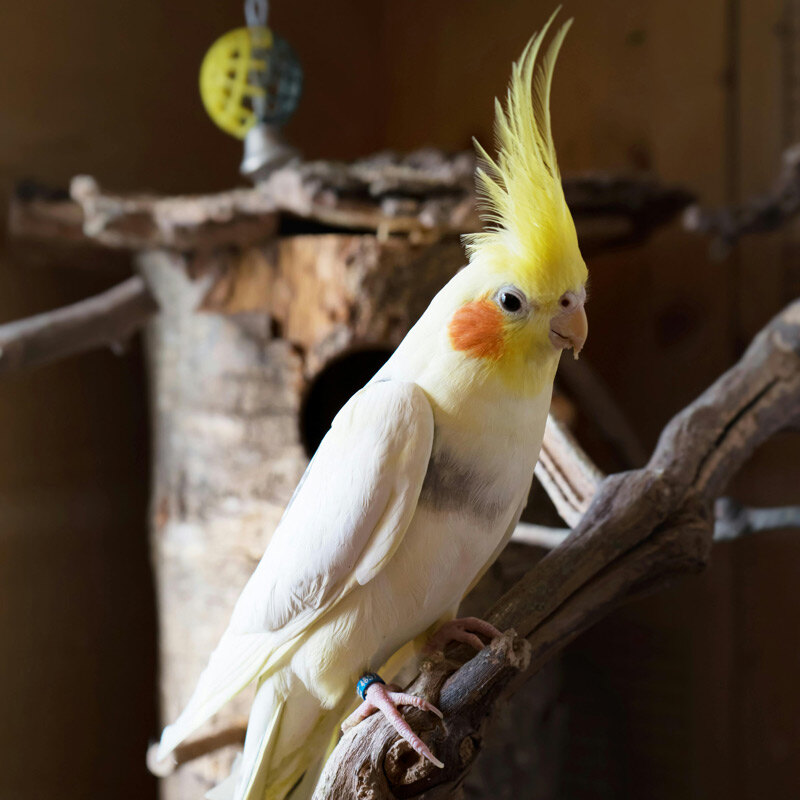
Credit: lafeber.com
Potential Benefits Of Mirrors For Birds
Bird owners often wonder if mirrors help their pets. Mirrors can offer several benefits to birds. They provide comfort and activity for birds kept alone.
This article covers how mirrors support solo birds and boost their mental health. Using mirrors correctly can improve a bird’s daily life.
Companionship For Solo Birds
Birds kept alone may feel lonely. A mirror can act like a friend. It gives birds a sense of company without needing another animal.
- Birds may sing and talk more when they see their reflection.
- The mirror helps reduce stress from loneliness.
- It encourages natural social behaviors safely.
- Birds often look at the mirror for comfort during quiet times.
Mental Stimulation And Enrichment
Mirrors can make a bird’s environment more interesting. They provide new sights and movements to watch. This keeps the bird’s brain active and alert.
| Benefit | How It Helps |
| Visual Interest | Birds watch their reflection and stay engaged. |
| Interaction | Birds may mimic movements and sounds, which is good exercise. |
| Activity | Mirrors encourage birds to move and explore their space. |
| Stress Reduction | Active birds feel calmer and less bored. |
Risks And Precautions
Putting birds in front of a mirror can cause risks if not done carefully. Birds may react in ways that affect their health and behavior.
Knowing the risks and how to prevent problems helps keep your bird safe and happy with a mirror.
Avoiding Aggressive Behavior
Birds sometimes see their reflection as a rival. This can cause them to act aggressively toward the mirror.
- Watch your bird’s reaction closely after adding a mirror.
- Remove the mirror if the bird attacks it often.
- Limit mirror time to short periods to reduce stress.
- Use mirrors that do not show a perfect reflection to reduce confusion.
Safe Mirror Placement Tips
Where you place the mirror matters. A bad location can make your bird nervous or hurt it.
| Placement Tip | Reason |
| Place mirror where bird can see but not get too close | Prevents physical harm and reduces stress |
| Avoid placing mirror near food or water bowls | Stops distraction during eating and drinking |
| Keep mirror away from direct sunlight | Prevents overheating and glare |
| Secure the mirror to avoid falls | Protects bird from injury |
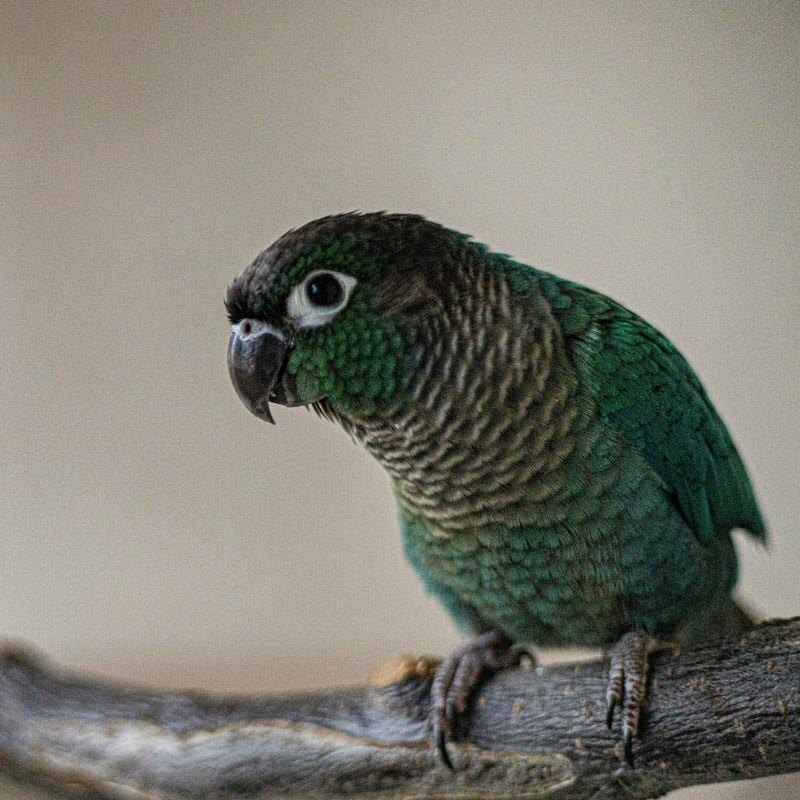
Credit: lafeber.com
Alternatives To Mirrors For Bird Enrichment
Mirrors are often used to keep birds entertained. But they can cause stress or confusion. Birds may think their reflection is another bird.
There are better ways to keep birds happy and busy. These alternatives help birds stay active and healthy.
Toys And Interactive Items
Toys are great for bird enrichment. They keep birds busy and help their minds stay sharp. Choose toys that are safe and made for birds.
Interactive items can include swings, puzzles, and chew toys. These items encourage natural behaviors like climbing and foraging.
- Chewable wooden toys
- Foraging puzzles with hidden treats
- Swings and ladders for climbing
- Bell toys for sound play
- Shiny but safe objects for curiosity
Social Interaction And Environmental Changes
Birds are social creatures and need interaction. Spending time with them helps reduce boredom. Talking or playing gently is good for bonding.
Changing the environment keeps birds interested. Move toys or perches to new spots. Add fresh branches or safe plants for variety.
- Spend daily time talking or playing
- Introduce new toys regularly
- Change perch locations often
- Add natural elements like branches
- Allow supervised outdoor time if safe
Frequently Asked Questions
Can Birds See Their Reflection In A Mirror?
Yes, birds can see their reflection. They often recognize it as another bird, which can affect their behavior positively or negatively.
Is It Safe To Put Birds In Front Of Mirrors?
Generally, mirrors are safe but should be monitored. Some birds may become stressed or aggressive when seeing their reflection.
Do Birds Get Lonely Without A Mirror?
Mirrors can reduce loneliness for some birds by simulating companionship. However, real social interaction is always better for their well-being.
Can Mirrors Cause Behavioral Issues In Birds?
Yes, mirrors might cause territorial aggression or repetitive behaviors in some birds, especially if they mistake their reflection for a rival.
Conclusion
Placing birds in front of a mirror can be both fun and tricky. Birds may enjoy seeing their reflection, but it can also confuse them. Some birds might think the reflection is another bird. Watch your bird’s behavior carefully to keep it safe.
Mirrors should not replace real social time with your bird. Always offer toys and interaction to keep your bird happy. A mirror can be a simple addition, not a full companion. Balance is key for your bird’s health and joy.

